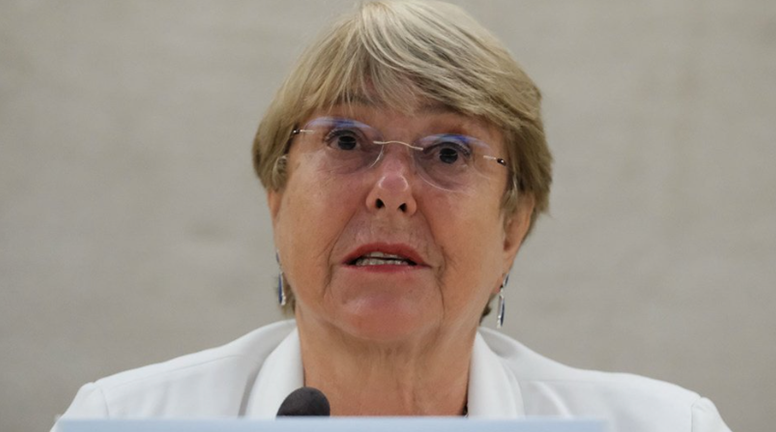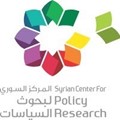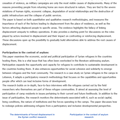Thousands of families of the missing are still ignorant of the fate of their children and loved ones in Syria
The United Nations General Assembly completed its meeting last Friday, the eighth of this April, where violations in Syria had a share in the briefing of the High Commissioner for Human Rights, Michelle Bachelet, the briefing that welcomed resolution 76/228 to obtain a study report on how to strengthen efforts to clarify the fate of missing persons In the Syrian Arab Republic and their whereabouts, identify the bodies and provide support to their families.
In her speech to the member states, Bachelet raised the reality of human rights in Syria and the violations that took place, describing the horrific scale of the tragedy in Syria, where many people disappeared in different contexts, such as hostilities and during displacement or detention.
"Despite the tireless work of Syrian victims and survivors, family associations and other civil society groups - and the efforts of many international bodies - the current situation of tens of thousands of people, their whereabouts and their fate remains unknown," Bachelet said in her speech to the General Assembly, stressing that the quest to determine the whereabouts and fate of the missing in Syria, including the forcibly disappeared, abducted and arbitrarily detained, is indicative of the constant pain, fear and suffering caused by the long and terrible conflict in the country.
She also pointed out that the past twelve years in the ongoing "conflict" in Syria were marked by a clear lack of progress in the issue of the forcibly disappeared and missing persons, and that thousands of families of the missing are still ignorant of the fate of their children and loved ones, adding that "it is necessary to inform them of the fate and location of the missing persons." Having loved ones and allowing them to visit or communicate with them.”
The High Commissioner also called for human rights and humanitarian agencies to be allowed access to all places where detainees and abductees are being held, and said: "It is imperative that the international community respond to the scale and horror of violations and crimes committed in Syria with concrete measures to promote human rights, human dignity and justice."
It is worth noting, that Bachelet's call to allow entry of international organizations to reveal the fate of detainees and forcibly disappeared persons is consistent with the initiative of the Charter of Truth and Justice, demanding immediate permission for the entry of international organizations to inspect prisons and reveal the reality of detainees and forcibly disappeared persons. “Every day of delay puts more victims at risk, and every day that passes without any action we lose more detainees who die in custody.”
Bachelet also referred to the Secretary-General’s speech last year, and that “tens of thousands of Syrians have been arbitrarily deprived of their liberty in harsh conditions and have often been subjected to torture and ill-treatment. Men and women, as well as children, including boys under the age of 11, have been subjected to sexual violence during detention,” referring to the tragic reality in all kinds of prisons and prisons in Syria.
In a related context, the High Commissioner stressed in her briefing that the scale of the disaster in Syria placed the families of the victims in the category of those directly affected by these violations as well, and that the impact on relatives, especially women and children, was severe, due to the multiple legal and practical obstacles they face in basic aspects. From their daily lives, they are today, Bachelet added, "forced to become the sole breadwinner as they conduct the terrifying and often frustrating search for their loved ones."
She also explained that the violations that affected the missing and the forcibly disappeared, extend today directly to their families, as the risks and fears of reprisal in the event of reporting cases, especially extortion and bribery by those who take advantage of the families’ despair. Detention and interrogation, exacerbating the suffering of families.” Families today are also victims, adding that “the realization of this right is an essential step towards accountability and reconciliation.”
In her speech to Member States, Bachelet stated that many families, whose search for the fate of their loved ones continues, cannot maintain basic livelihoods, or access to their property, civil documents, bank accounts, or access to inheritance, in part because The discriminatory laws and practices that preceded the conflict persist, and many must fight for guardianship of their children, often without social support and in the face of stigmatization by the wider community.
The Commissioner drew attention to the direct impact of this harm on children, such as losing their right to access education, after losing the main breadwinner for their families.
Regarding the report that will be issued by the Office of the High Commissioner, Bachelet stressed that the process of preparing the report is not an end in itself.
The High Commissioner also offered that the report would take into account the gender impact on the missing, and that the report would ensure that women's views on this issue were included.
The High Commissioner concluded her speech by noting that: “It is imperative that the international community respond to the scale and horror of violations and crimes committed in Syria with concrete measures to promote human rights, human dignity and justice,” calling on governments to “contribute strongly” to taking action on this issue, stressing that consultations are in place between Relevant bodies, such as the Commission of Inquiry on Syria, the International Committee of the Red Cross, the International Committee on Missing Persons, and the United Nations Working Group on Enforced or Involuntary Disappearances.





